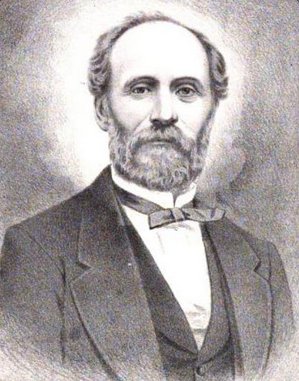Luther H. Foster facts for kids
Quick facts for kids
Luther H Foster
|
|
|---|---|

c. 1868
|
|
| Born | May 31, 1827 |
| Died | June 20, 1876 (aged 49) |
| Resting place | Lakeview Cemetery Ludington, Michigan, US |
| Nationality | American |
| Education | Local public schools |
| Occupation | businessman, lumberman |
| Known for | developing Mason County and Ludington, Michigan |
| Title | General Manager, Manufacturer |
| Children | Frank and Edwin |
Luther Hall Foster was an important businessman and "lumber tycoon" in the 1800s. He was famous for helping to build many lumber companies. He also played a big part in developing the city of Ludington, Michigan.
Contents
Early Life and Learning
Luther was born in East Machias, Maine on May 31, 1827. His parents were Edward and Fannie Foster. He started school very young, at age three. He went to public schools until he was seventeen. Luther was very good at math and understanding how things worked.
When he was a boy, Luther also started learning music. His father was a talented musician, which inspired him. Around age eighteen, Luther bought a special musical instrument called a seraphine. He became a very skilled musician himself.
Building a Business
In 1851, Luther and his brother, Edward, went to Ridgway, Pennsylvania. They wanted to work in the lumber business. They rented an old sawmill and worked very hard, sometimes up to eighteen hours a day. With just one employee, they could produce about 6,000 to 8,000 board feet of lumber each day.
Later, in 1855, the brothers moved to Oshkosh, Wisconsin. They managed a lumber business there until 1857. After that, Luther and Edward moved to Stiles, Wisconsin, which is on the shore of Green Bay. They worked for several lumber companies for seven years.
Moving to Michigan
In 1865, Luther and Edward traveled across Lake Michigan to Muskegon, Michigan. They worked for a lumber company there for about a year. Then, in 1866, they went north to a small village called Pere Marquette. This village later became the city of Ludington, Michigan. At that time, the area was mostly thick forests with just a small village around a sawmill.
A famous lumber businessman named James Ludington hired Luther and Edward. Ludington needed help managing his huge land and lumber businesses because he was not well. The Foster brothers created a plan to manage Ludington's timber and land. They showed this plan to Delos L. Filer. This led to the creation of the Pere Marquette Lumber Company in 1869.
The new company raised $500,000 to buy Ludington's businesses. The partners in this new company were Luther, his brother Edward, D. L. Filer, John Mason Loomis, John McLaren, and James Ludington himself.
Personal Life
Luther married Lucy Amelia Schraam in Camden, New York on May 25, 1855. Luther built a beautiful home across from the Pere Marquette Lumber Company's "Big Store." His wife and their two sons, Frank and Edward, continued to live there even after Luther passed away.
Luther was an active member of the Ludington Presbyterian Church. He cared a lot about religious activities. Luther, his wife, their two children, and three other children started the first Sunday school in Ludington. He was a leader for Sunday schools in Ludington throughout his life. In 1870, Luther also helped start a Congregational Church in Ludington. He supported it until 1874, when he joined the Ludington Presbyterian Church.
Luther also served as a commissioner for Ludington under the Michigan land commissioner. He supported the Republican political party.
Later Life and Legacy
Luther Foster passed away on June 20, 1876.
Luther played a very important role in planning the city of Ludington when it was still a village. He also named all the main streets in Ludington. He was key in helping Ludington become the main city for Mason County, Michigan.
One of the school buildings in Ludington is named Luther H. Foster. This shows how much he cared about the city's schools and churches. Foster Street in Ludington is also named after this important lumberman and pioneer.

